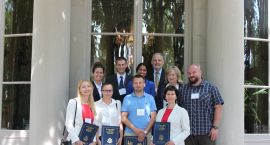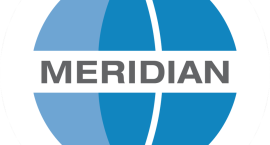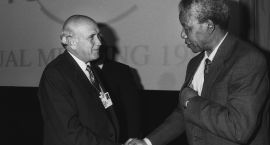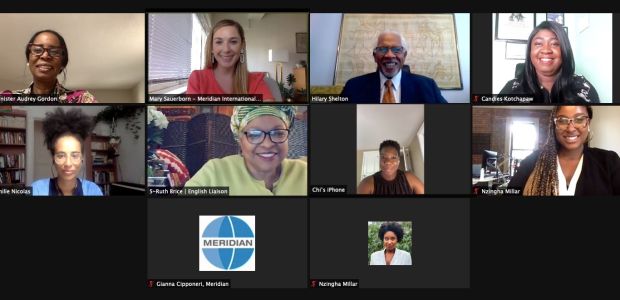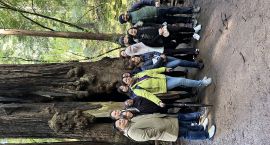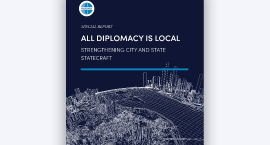How did your virtual IVLP experience impact you? Were there any particular resources that inspired you, changed your perspective, or sparked new ideas in how to approach your work?
The virtual IVLP experience was incredibly valuable in further aligning and clarifying the trajectory of my professional career. Coming into the program, I was happy with getting the opportunity to connect with fellow Black leaders across Canada and to learn about possible opportunities to collaborate with American counterparts. As the program progressed, I saw deep connections and synergies among the speakers, projects and prospects for further development in my own career journey as an aspiring Black diplomat.
Specifically, I was able to identify a consistent thread with the concepts of American Federalism, the institutional approach to advance and accomplish goals that move Black priorities forward, and how policy agendas are established that have legislative implications. The ensuing materialization of learning outcomes for me came through identifying the significance of Black diplomacy at the municipal (local), provincial (state), and federal levels of governments, including the executive and judiciary branches. In Canada, Black diplomacy as a unifying concept is still in the formative stages, and the work I do through the Black Diplomats Academy encompasses all the activities of understanding how to gain consensus on an issue while streamlining the process to align policy priorities with governments, corporate institutions, private sectors, and other NGOs.
Be patient, persistent, and brave…
During the pandemic, Meridian has had to find new and innovative ways to advance public diplomacy and did so in part by reinforcing the collaborative nature of the IVLP. What advice would you pass along to other young Black professionals entering careers in diplomacy?
The best advice I can offer to other young Black professionals is to be prepared to navigate this space with an open mind for advancing your careers. There is no direct marker for how or when you will get to your desired landing spot, but if you write your vision of where you want to end up in your career, you will be able to get there. Be patient, persistent, and brave; build a strong network of mentors and career sponsors; and be a staunch advocate for access to experiential learning. These are the people and activities that will get you in the room and create the space for your seat at the decision-making table.
At Meridian, we believe that a diversity of perspectives brings better ideas and outcomes. What is something you would like to see your work sector do differently in the future, as it relates to uplifting Black voices?
Currently working in the non-profit sector, one idea I’ve been working to advance is the notion of self-governance and capacity building for small non-profits and non-status grassroots organizations. Predominantly these organizations are Black-led and Black-serving, which means they face inequities in access to available resources. I’d like to see more established organizations intentionally champion and develop coalitions with smaller non-profits and grassroots organizations in order to help them gain access to available resources such as funding, partnership opportunities with decision-making bodies, and spotlighting impactful change-making can be a gateway to broader systemic equity.
I hope to leave behind a strong narrative of visionary work that itemizes the pathway of institutional change fueled by Black Diplomacy in Canada and globally.
Lastly, what does legacy look like for you? What do you hope to leave behind professionally?
Legacy for me is 20 years down the road, seeing Black young people in Canada and around the world who have gone through the Black Diplomats Academy holding senior domestic and international leadership roles. Seeing Black young people being confident that their social location or any other external factor is no longer a significant barrier to their career success is legacy-defining for me.
I hope to leave behind a strong narrative of visionary work that itemizes the pathway of institutional change fueled by Black Diplomacy in Canada and globally. This vision for leveraging lived experience of Black young people to influence, develop and amend domestic and international policies by providing education, training, and mentorship is the signature I hope to leave on the diplomatic landscape.









